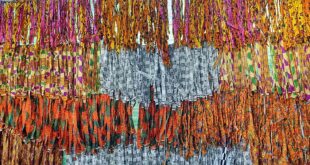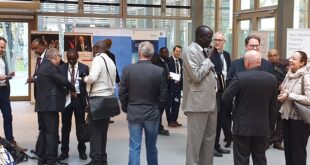German analyst Gerd Eckert* looks at the potential benefits of greater German engagement in Ghana as the West African country marks its 66th independence anniversary
—
Ghana – a former British colony – gained its independence under the leadership of the first Prime Minister, Dr Kwame Nkrumah, who is now respected as a visionary of his time. Today we hear Vice President Mahamudu Bawumia speaks about his vision for Ghana: “… we cannot simply rebuild an economy with bricks and concrete, we can only transform an economy with ideas, systems and institutions; that is, for a system to build a new Ghana worthy of the title ‘Gateway to Africa’!”
The country’s more than 60-year development process passed through unevenly difficult phases. The path to a free and responsible state policy has also brought some serious setbacks.
A decisive period began for the country in January 1993 with the path to the 4th Republic, in the form of presidential democracy under President John Jerry Rawlings.
Today, Ghana is singled out as a model in the so-called awakening of Africa. Ghana as a stable state is based on a well-developed democracy. A positive rating in the IMF ranking for 2022 shows Ghana in 72nd place (GDP: $79.2 billion).
In order to rate the country as an anchor of stability in West Africa, we have to assess a number of determining facts for Ghana under current globalisation events that require necessary changes for a sustainable development path. The growth rate (GDP ) was 5.4 % in 2021 and 3.5 % is expected for 2022. With far-reaching structural reforms, economic strength is expected to increase steadily in the new year 2023.
Ghana’s wealth comes from the resource base of gold, cocoa, timber, minerals such as manganese, bauxite (aluminium) and, last but not least, agricultural products, the proceeds of which may fill the coffers. However, it is crucial to use them to process the raw materials locally and to add value. In view of the strong impact of the debt crisis, the state lacks sufficient funds in its financial policy, e.g. to strengthen investment and social funds. On the difficult path to solving the debt crisis, the Ghanaian government was able to agree on a loan package of US$ 3 billion with the IMF in December 2022.
The ongoing burden of crisis brings with it other significant developmental weaknesses that need to be overcome. The 31.1 % inflation rate alone is having a strong impact on the life of the populace, which is resenting the government with frustration and resentment. The biggest challenge for the government is to curb the growing social and regional inequality in the country.
My position is that Ghana, as a called-up reform partner in West Africa in the current crisis situation, can come closer to its set strategic goals by 2030 more quickly with our more offensive cooperation and balanced willingness to invest on the part of German companies.
Here I would like to refer to the economic initiative “One District – One Factory” launched by President Akufo – Addo in 2017, which will have 232 projects in the manufacturing sector by 2022, 76 Companies for New Food (Green Food), 48 Existing Food. This is an approach to expanding commercial capacities in Ghana through the participation of German SMEs under the direction of the SME association.
Agriculture is a major challenge for Africa in ensuring food sovereignty. For Ghana, the Minister of Agriculture advocates accelerating economic stability and value creation based on the Planting for Food and Jobs (PFJ) programme. Strategic efforts are needed for primary production and processing with modern technology and reduction of crop losses.
At the DAKAR-2 Summit “Feeding Africa” in January 22023, Senegal’s President Macky Sall pointed out that up to 40% of agricultural production in Africa is lost due to insufficient storage and preservation! In order to relate the cornerstones he mentioned to Ghana, among others to improve agricultural mechanisation, I have already given the idea for the development of so-called compact agricultural projects, planned regionally.
That is, the food processing projects already planned in the programme should be included in the structure of an industrial park of agro-modernisation, for cultivation, processing, storage, transport, as well as with workshops for handicraft and technological services. And this under the aspect of creating interesting jobs, including education for the youth.
German companies should set themselves up in a cooperative form for collaboration with industrial and commercial project proposals for this sector and offer these to the Ghanaian partners. I am addressing companies in the agricultural machinery sector, agribusinesses and experts, as well as the KfW-Development Bank/DEG – for financing issues, and I also expect the BDI to cooperate in order to trigger operational activities.
The global times require an accelerated approach to expand our market position in Ghana / West Africa, because China, Russia, India have their perfect connection on the continent….
I conclude with the clear slogan of the BDI ” Africa is today a MUST for the German economy ! and refer this concretely to our good relations with Ghana !”
Gerd Eckert is a consultant on Research & Project Development in Africa
 THE AFRICAN COURIER. Reporting Africa and its Diaspora! The African Courier is an international magazine published in Germany to report on Africa and the Diaspora African experience. The first issue of the bimonthly magazine appeared on the newsstands on 15 February 1998. The African Courier is a communication forum for European-African political, economic and cultural exchanges, and a voice for Africa in Europe.
THE AFRICAN COURIER. Reporting Africa and its Diaspora! The African Courier is an international magazine published in Germany to report on Africa and the Diaspora African experience. The first issue of the bimonthly magazine appeared on the newsstands on 15 February 1998. The African Courier is a communication forum for European-African political, economic and cultural exchanges, and a voice for Africa in Europe.
































